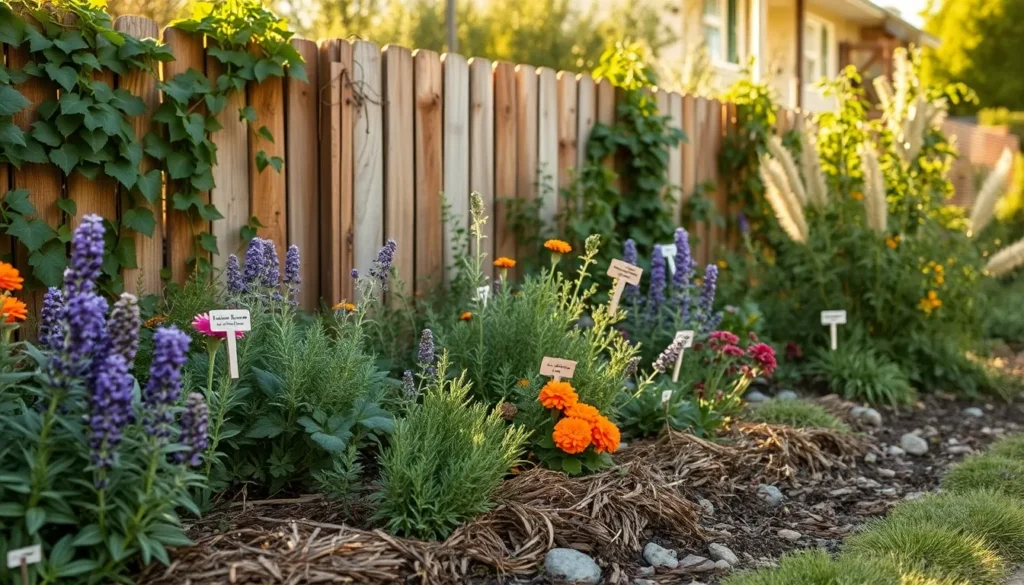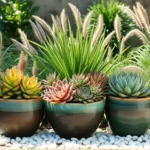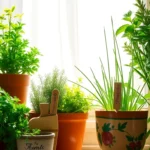When it comes to creating a garden that thrives, few challenges are as persistently perplexing as keeping those adorable yet ravenous rabbits at bay. For both budding gardeners and seasoned green thumbs, the sight of nibbled leaves and missing sprouts can be disheartening, turning a labor of love into an unexpected frustration. In this article, we’ll delve into practical, effective strategies to protect your precious plants while maintaining a harmonious relationship with nature.
Understanding the habits and preferences of rabbits is key to crafting a garden defense that is both humane and effective. By the end of this guide, you’ll be equipped with a toolkit of approaches—from natural repellents to strategic garden design—that will empower you to safeguard your green haven without resorting to harsh measures. Whether you’re just starting to till your first plot or have years of experience under your belt, there’s always room to refine your approach and learn new techniques.
We believe that every gardener deserves the joy of seeing their garden flourish untroubled by uninvited guests. Our goal is to provide you with not just solutions, but also the confidence to implement them seamlessly into your gardening routine. So, let’s embark on this journey together, turning potential obstacles into opportunities for growth and success in your personal paradise.
Install Rabbit-Proof Fencing
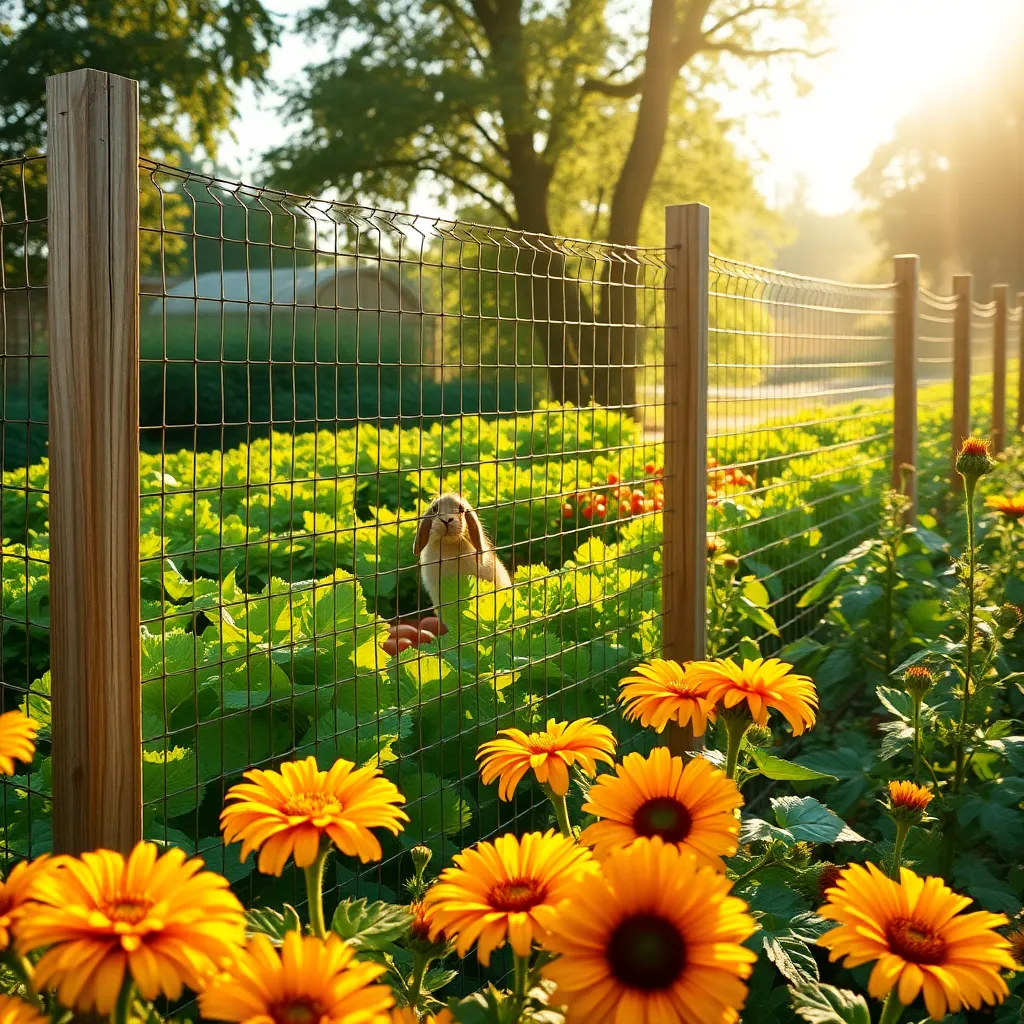
To effectively keep rabbits out of your garden, installing a rabbit-proof fence is a reliable solution. Begin by selecting a sturdy material such as galvanized wire mesh, which should have openings no larger than one inch to prevent rabbits from squeezing through.
Ensure the fence is at least three feet high to deter rabbits from jumping over it. Additionally, bury the bottom of the fence at least six inches deep to prevent rabbits from burrowing underneath—this is a crucial step for comprehensive protection.
For added security, consider angling the top of the fence outward at a 45-degree angle. This angle makes it challenging for rabbits to climb, offering an extra layer of defense against persistent intruders.
Regular maintenance is essential to keep your fence effective. Inspect the fence periodically for any damage or gaps, repairing them promptly to maintain its integrity and ensure your garden remains a rabbit-free zone.
Apply Natural Deterrents
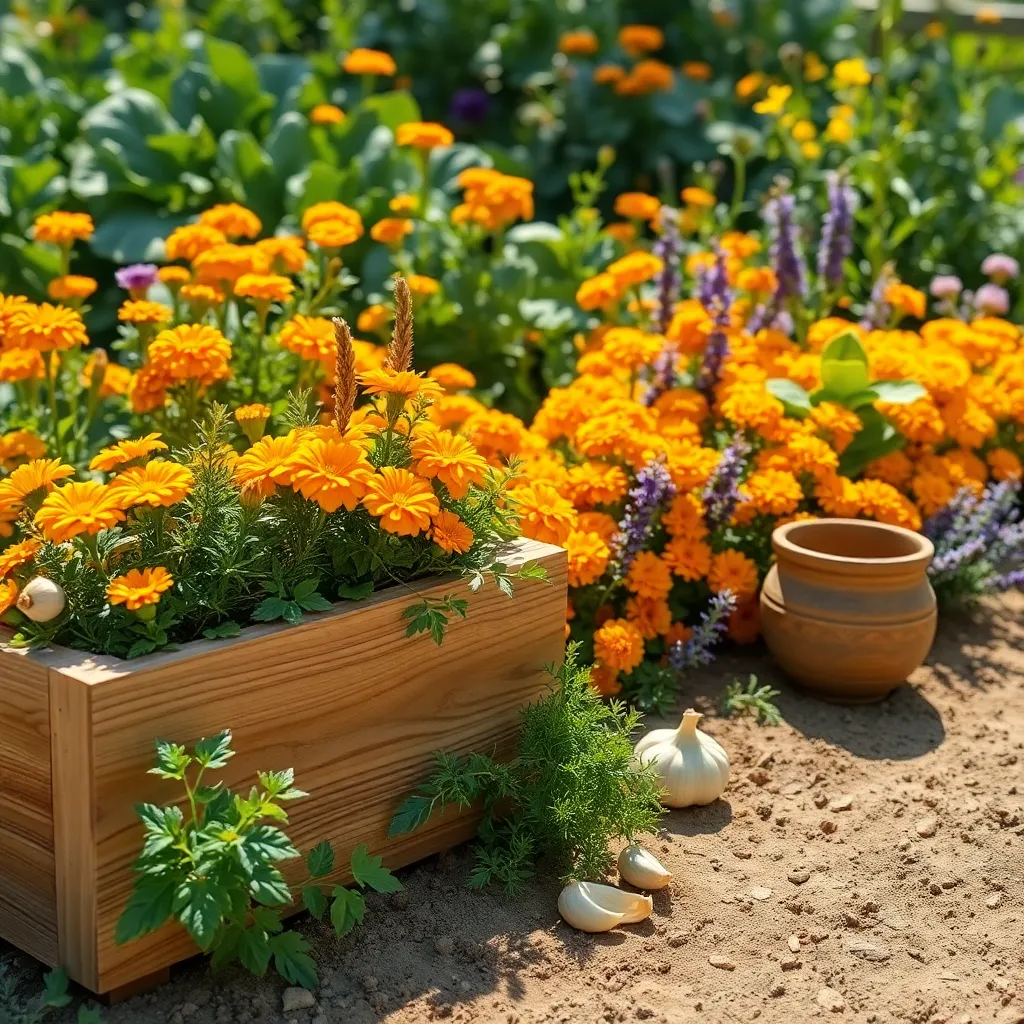
Applying natural deterrents is an effective way to keep rabbits out of your garden without harming them. One popular method is using strong-smelling plants such as marigolds, lavender, and onions, which can be strategically planted around the garden’s perimeter to repel rabbits.
Another option is to incorporate homemade sprays or mixtures that utilize common household ingredients. A mixture of water, crushed garlic, and a few drops of dish soap can be sprayed on plants to create a scent that rabbits find unappealing.
It’s also beneficial to spread certain organic materials around your garden that rabbits dislike. Sprinkling blood meal or bone meal onto the soil not only repels rabbits but also enriches the soil with nutrients, enhancing plant growth.
For gardeners seeking advanced techniques, consider using predator urine as a deterrent. Products containing coyote or fox urine can be applied around the garden to simulate the presence of natural predators, creating an environment that rabbits tend to avoid.
Remove Nearby Rabbit Habitats
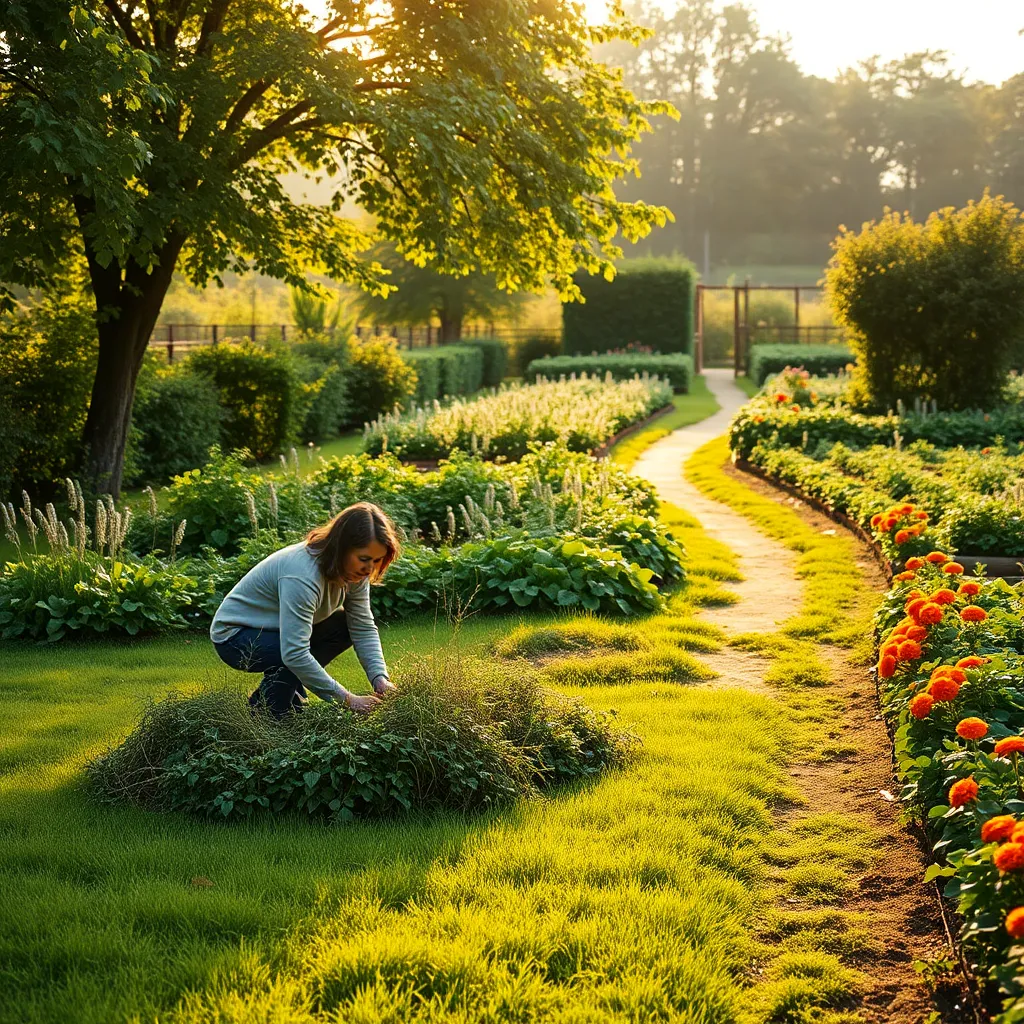
Removing nearby rabbit habitats is a crucial step in keeping these furry visitors out of your garden. Rabbits are attracted to areas that offer both food and shelter, so addressing these factors is essential.
Begin by identifying and removing potential hiding spots like piles of brush, dense shrubs, or low-growing plants. By clearing these areas, you make your garden less inviting for rabbits looking for a cozy home.
Consider installing physical barriers such as wire mesh fencing around your garden perimeter. A fence at least 2 feet high, with the bottom buried 6 inches deep, can effectively deter rabbits.
For gardens with existing rabbit issues, regularly inspect and maintain any garden fences or barriers. Ensure that there are no gaps or weak spots where rabbits could squeeze through or burrow under.
- Remove debris and clutter around your garden to eliminate potential nesting sites.
- Trim low-hanging branches or dense undergrowth frequently to reduce cover.
- Use decorative rocks or mulch to cover bare soil areas, making it less appealing for rabbits to dig.
Incorporating these strategies not only helps in rabbit control but also enhances the overall tidiness and health of your garden. By being proactive, you protect your plants from damage while maintaining a beautiful outdoor space.
Use Raised Garden Beds
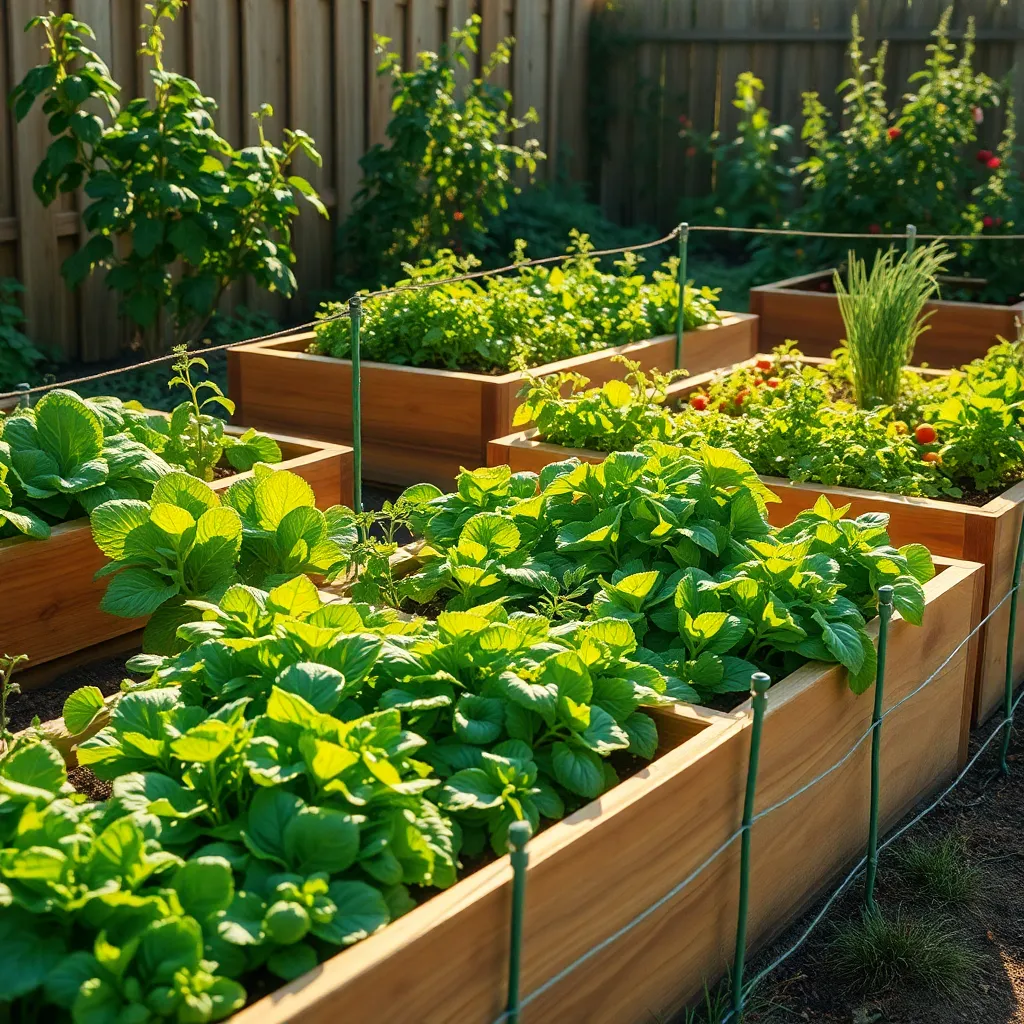
Raised garden beds offer an effective way to keep rabbits out of your garden, as these structures naturally create a barrier that is difficult for rabbits to penetrate. By elevating your plants, you make it harder for rabbits to reach them, adding an additional layer of protection to your garden area.
Consider building your raised bed at least 18 inches high to maximize effectiveness against rabbit intrusion. Use materials such as untreated wood, stone, or metal to construct your beds, ensuring durability and longevity in your garden setup.
Fill the raised beds with a high-quality soil mix that includes compost to provide your plants with rich nutrients. This setup not only helps in protecting plants from rabbits but also enhances plant growth by improving drainage and preventing soil compaction.
For added security, cover the sides of your raised bed with a fine-mesh wire or hardware cloth to prevent any persistent rabbits from gnawing their way through. Ensure the mesh extends a few inches into the ground to deter any burrowing attempts from below.
Incorporate Rabbit-Resistant Plants
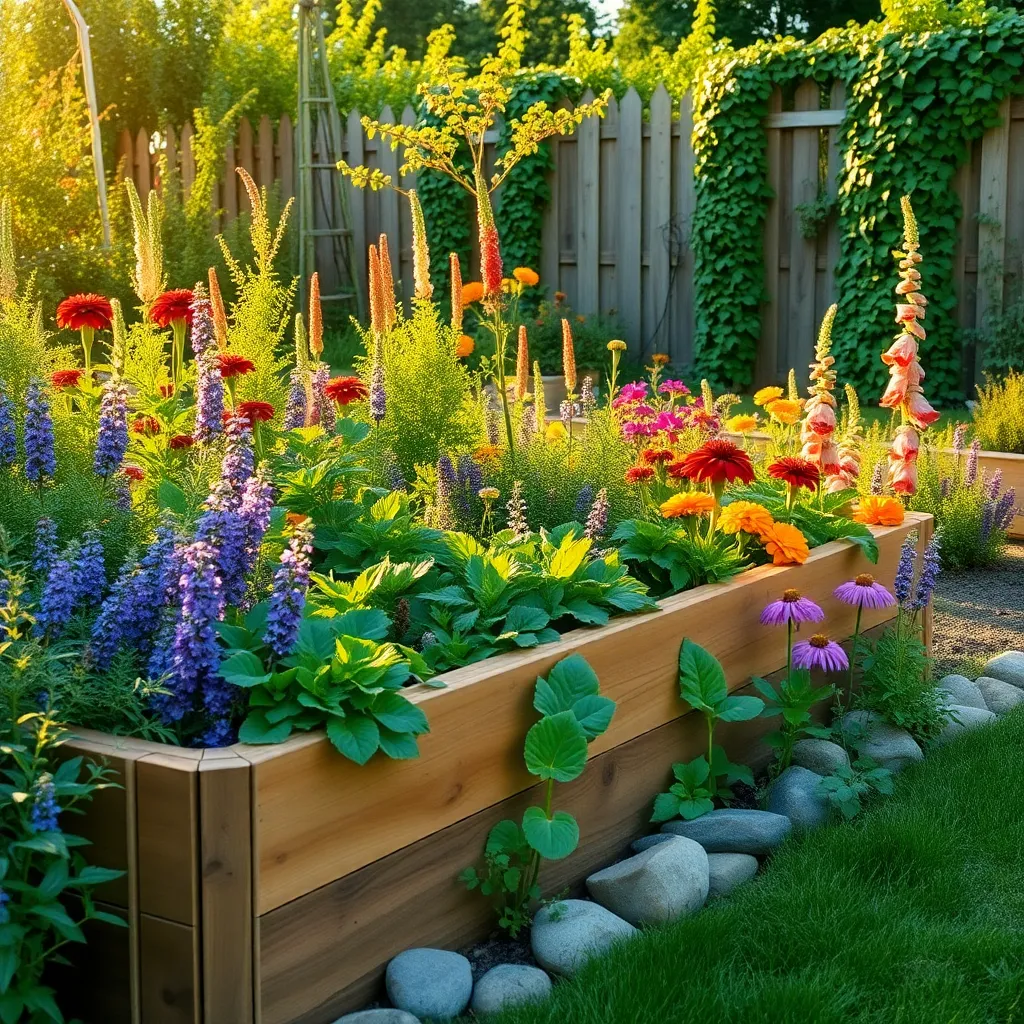
One effective way to deter rabbits from your garden is to incorporate plants they generally avoid. Plants with strong scents or fuzzy leaves, like lavender and lamb’s ear, can be natural repellents. These plants not only add beauty to your garden but also require minimal maintenance once established. Lavender thrives in well-drained soil and needs full sun, while lamb’s ear prefers a slightly shaded spot with moderately moist soil.
Consider mixing ornamental grasses like fountain grass or blue fescue into your plantings. Rabbits tend to leave these alone due to their texture and tougher leaves. Plant these in well-draining soil and ensure they receive adequate sunlight, as most grasses prefer full sun to partial shade. Regularly trim back any dead foliage to keep the plants healthy and looking their best.
For those seeking a splash of color, marigolds and snapdragons are excellent choices. These plants not only brighten up your garden but are also known for their rabbit-resistant properties due to their taste and fragrance. Marigolds prefer full sun and moderately fertile soil, while snapdragons thrive in cooler conditions with rich, well-draining soil. Water these plants consistently, but be careful not to overwater, especially in areas with clay-heavy soils.
In addition to these, try planting herbs such as rosemary and sage, which are rarely nibbled on by rabbits. These herbs are easy to maintain and can also be harvested for culinary uses. Rosemary prefers dry, sandy soil and full sun, while sage can tolerate poorer soil conditions but appreciates good drainage and sunny spots. Make sure to prune them regularly to encourage bushy growth and keep them from becoming woody.
Conclusion: Growing Success with These Plants
In navigating the intricate dance of relationships, understanding and implementing key concepts can transform challenges into opportunities for growth. In this article, we explored five pivotal concepts: communication, trust, empathy, boundaries, and mutual respect. By fostering open communication, nurturing trust, practicing empathy, establishing clear boundaries, and ensuring mutual respect, you lay a solid foundation for a flourishing relationship.
As an immediate step, consider having an open, honest conversation with your partner or loved one today. This simple act can pave the way for deeper understanding and stronger connections. To ensure you have this valuable information at your fingertips whenever you need it, don’t forget to bookmark this article. It’s a resource you might want to revisit as you continue to nurture and develop your relationships.
Remember, every relationship is a journey, and with the right tools and mindset, you can navigate it successfully. By committing to these principles, you are not just preserving relationships; you are creating a future rich with meaningful, resilient connections. Save this guide as your go-to resource, and step confidently toward a future where your relationships thrive.

